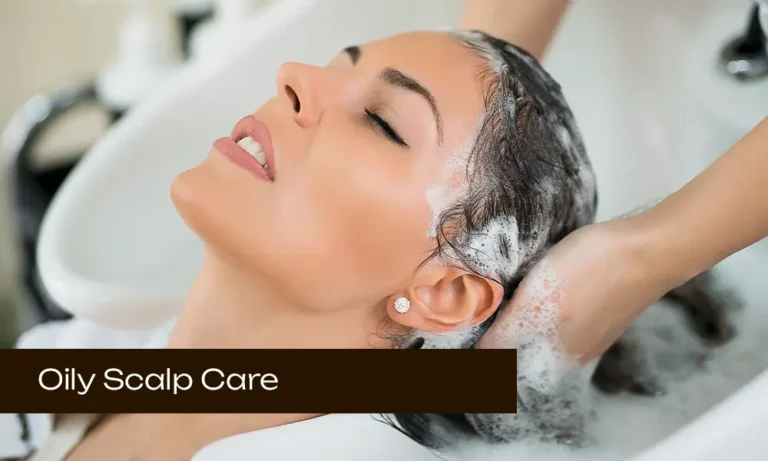
An oily scalp refers to a condition where the scalp produces excess sebum, the natural oil produced by sebaceous glands in the skin. Sebum is meant to keep the scalp and hair moisturized, but when too much is produced, it can lead to a greasy feeling, excessive shine, and sometimes clogged pores or dandruff.
Several factors can contribute to an oily scalp, including:
An oily scalp can lead to greasy hair, clogged pores (which could result in scalp acne), and dandruff if not managed properly. It’s often treated with specialized shampoos, gentle cleansing routines, or lifestyle changes.
There are various reasons why your scalp might produce more oil than necessary. Here are some of the most common causes:
Overactive Sebaceous Glands: Your genetics play a significant role in how much oil your scalp produces. If your parents had oily hair, there’s a good chance you will too.
Hormonal Changes: Hormonal fluctuations, particularly during puberty, pregnancy, menstruation, or menopause, can trigger an increase in oil production. The increase in androgen hormones during these times stimulates sebaceous glands, leading to more sebum.
Diet: What you eat can affect your skin and hair. A diet high in greasy, fatty, or sugary foods may contribute to an overproduction of oil. Some studies have also shown that dairy and processed foods can aggravate oily scalp issues.
Hair Care Products: Ironically, certain hair care products designed to moisturize or add shine might contribute to oily hair if used in excess. Overuse of such products can leave behind residues that weigh your hair down, making it greasy.
Environmental Factors: Weather conditions can also play a part. High humidity or hot weather can cause your sebaceous glands to overproduce oil, leading to a greasy scalp and hair.
The scalp acts as the foundation for healthy hair growth, and if it’s not well-nourished or balanced, it can lead to issues like hair thinning, dryness, or dandruff. Proper oil scalp care helps:
Overall, oil scalp care helps to nurture the scalp, creating a healthier environment for hair to grow and thrive.
The most obvious symptom of an oily scalp is hair that feels greasy or sticky, even after washing. Other signs might include:
As with any medical treatment, there are potential risks and side effects to consider:
Expert Team: Our skilled doctors specialize in advanced hair restoration techniques, ensuring the best care.
State-of-the-Art Facilities: We use cutting-edge technology to deliver optimal results.
Comprehensive Approach: We enhance PRP therapy with complementary treatments like Regenera Activa and laser therapy for superior outcomes.
Convenient Locations: Proudly serving clients in Subang Jaya and Kuala Lumpur.
Trusted by Patients: With outstanding reviews and proven results, we are the go-to choice for hair restoration.
1. How often should I oil my scalp?
The frequency of oiling depends on your scalp type. For dry scalps, oil 2-3 times a week. If you have an oily scalp, limit oiling to once a week to avoid excess buildup. If your scalp is balanced, once a week is usually sufficient.
2. Can oil scalp care help with scalp conditions like dandruff or irritation?
Yes, oil scalp care is effective in treating various scalp conditions. Oils like tea tree and peppermint oil have anti-inflammatory and antifungal properties that can help alleviate dandruff, itchiness, and irritation. Regular use of oils can soothe and improve scalp health, reducing these issues over time.
3. Does oil scalp care make your scalp too greasy?
Not necessarily. When applied correctly and in moderation, oils like jojoba or argan oil can hydrate and nourish the scalp without making it greasy. If you have an oily scalp, choose lighter oils and avoid applying them too frequently.
4. Can I leave oil on my scalp overnight?
Yes, leaving oil overnight can provide intensive hydration and nourishment to a dry, irritated scalp. Just make sure to cover your pillow with a towel or use a shower cap to protect your bedding. If you have an oily scalp, you may want to leave it on for a shorter time, like 30 minutes to an hour.
5. How do I know if oiling my scalp is working?
You’ll likely notice smoother, more hydrated skin on your scalp. It may also help reduce dandruff and flakiness while soothing any irritation. If you’re using oil to improve circulation or treat inflammation, you may also notice healthier, shinier hair over time.